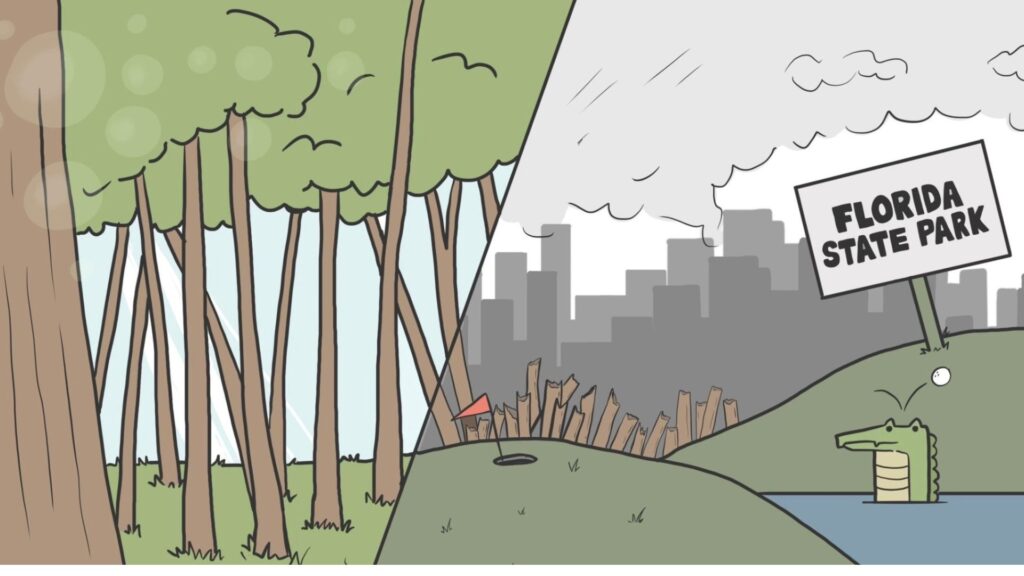Harmful Plans To Build Over State Parks Leaked
On Aug. 19, a whistleblower leaked plans to level public lands to develop hotels, golf courses and other private businesses on Florida State Parks.
The revelation quickly angered many Floridians who felt that the development of nine state parks, including Oleta River, Hillsborough River, Grayton Beach and Camp Helen, would lead to the destruction of many precious habitats and wildlife.
James Gaddis, a former employee of the Florida Department Of Environmental Protection, was revealed to be the person who leaked the documents.
The 41-year-old was a cartographer for the agency and was directly tasked with drawing the maps for the amenities throughout the state parks.
Following the public backlash many have tried to distance themselves from the proposed development, including Governor Ron De Santis, whose administration originally presented it.
In a press conference, on Aug. 28, De Santis downplayed the plans as “half baked” and stated the leaks were an attempt by left-wing groups to spin a phony narrative.
On Aug. 31, Gaddis was fired by the DEP, and began speaking with media outlets including the Tampa Bay Times saying, “Two main reasons he chose to speak out: The rushed secrecy that was behind the park plans, and the vast environmental destruction that would be caused if they were to be completed.”
The outrage felt by Floridians seems obvious and leads to the question of whether the secrecy was an attempt to avoid such backlash like past Republican administrators, who have attempted to leverage revenue from state parks, have experienced.
According to WSVN, “In 2015, then Gov. Rick Scott’s administration floated plans to allow cattle farmers to graze their herds and loggers to harvest timber from park lands.”
Many people attend state parks daily for a variety of activities and schools often use the parks as their classrooms to promote interactive learning experiences.
According to Florida State Parks, there are 175 parks spanning across the state, and one would be hard pressed to find a Floridian who has not visited one with their school or family. Many positive memories have been built over the protected habitats in these parks.
Harming these lands to develop for profit amenities would go against the environmental identity of Florida, and the public outrage was an expression of that.
If it were not for James Gaddis, who knows whether the proposals would still be moving forward or if the public would ever be made aware of such plans.
His efforts afforded the public an opportunity to have their voices heard and resulted in the pull back of these proposals.
However, the agency’s secrecy is concerning, and leads to the question, if there are other instances where public lands are being used for profit to the detriment of the environment.
It is important that we combat these types of wrongs by speaking out when you feel something is truly detrimental to the environment we live in. For more information on how to visit Florida State Parks or become involved,visit: www.floridastateparks.org.

